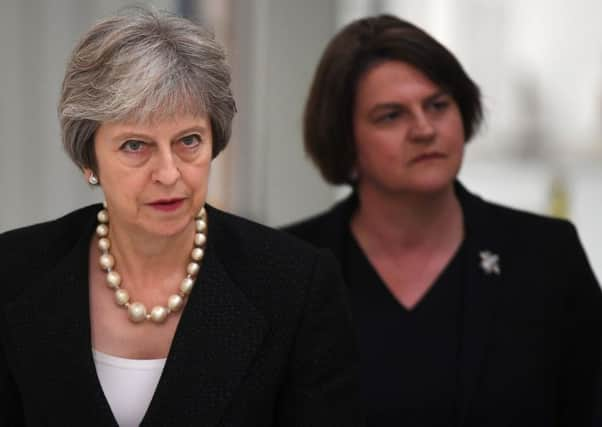Unfairness of first-past-the-post saw DUP decide 2017 general election


Given the recent political chaos and Brexit fallout, the 2017 General Election now feels like a lifetime ago.
I’ll never forget the day May called the snap election or the moment I heard the news. I was in the basement of one of the old towers at Dynamic Earth, preparing to launch Labour’s local government election campaign. Just minutes before I was due to take to the stage in front of an invited audience and most of Scotland’s political journalists, the PM took to the steps of Downing Street and made the announcement. Given the timing, I was the first politician in the UK to respond and nobody wanted to hear about the council elections anymore.
Advertisement
Hide AdAdvertisement
Hide AdThat day the PM spun the electoral roulette wheel in the hope of a working majority. Instead, what she got was a resurgent Labour Party and only enough seats to cling on to power with the help of the Democratic Unionist Party (DUP). What’s astonishing is the DUP polled just 292,000 votes that day and got no less than 10 MPs. Scottish Labour would poll two and half times that and only return seven MPs. The Greens polled half a million votes across the UK and got just one MP.
Those 10 DUP MPs for a long time held the balance of power and wielded it in return for a billion pound bung. The great irony of course being that without a government in Stormont, not a penny of the cash was used to reform or better public services; it would just do to keep them ticking over. So just under 300,000 votes determined the 2017 election and the hue of the UK Government for two years. Only the internal fighting of the Tories undermines it now.
The UK electoral system’s ability to put power in the hands of so few, of course raises questions about democratic deficits and just how fair our electoral system actually is. The current first-past-the-post system has failed and the strongest arguments against using proportional representation (PR) – that it produces weak or unstable governments – is just no longer true.
We can do things better, look at the Single Transferable Vote, one version of PR that has been used for local government elections in Scotland since 2007. It has its critics, those opposed to larger council wards and concerned about a weaker link between communities and their elected representatives. Take Leith Walk for example. Can any one local councillor properly represent 20,000 people?
Advertisement
Hide AdAdvertisement
Hide AdThese wards are bigger so that they elect up to four members proportionately. And, it works. The 2017 local election delivered two SNP, one Green and one Labour councillor. That gave the vast majority of people in Leith Walk a councillor they’d voted for. Proportionally and fairly. Two years on that result has been contorted. One councillor has gone independent, stubbornly refusing to rescind his seat and the Labour councillor has resigned, resulting in the by-election. There’s one vacancy and voters will be asked to fill it this Thursday. It’s time for folk in Leith Walk to decide what their vote is worth.
Labour’s candidate is the wonderful Nick Gardner, who is everything you’d want a local representative to be. Rooted in his community, opposed to big developments, and a passionate campaigner for social justice and affordable housing. He’s on the community council, is a friend of Pilrig Park and has been at the heart of the Save the Leith Walk campaign. He’s fought racism and promoted equality all of his life. He’s inclusive and celebrates diversity. He’s everything Leith is all about which is why he’d serve it so well.
Voting Labour on Thursday, means supporting someone who will be a champion in the chambers and fight Leith Walk’s corner. Breaking free of the political monotony and bringing back some desperately needed political balance. If you’re tired of politics and politicians, let’s keep local politics proportional and fair and consider Nick as a breath of fresh air in this stale political climate.
